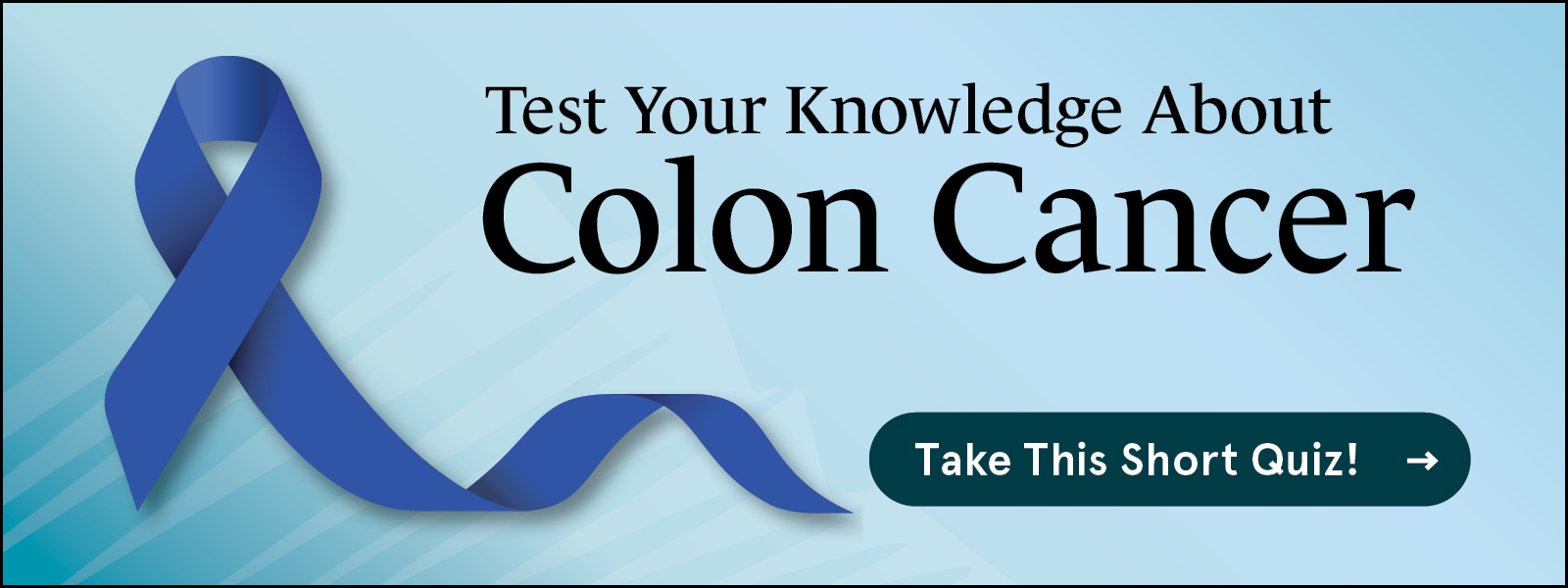Colon Cancer is on the Rise in Young Adults
7 min read

Colorectal cancer is typically viewed as a concern for older individuals. However, the disease has seen a significant increase among younger adults, and recent studies have shown that colorectal cancer, cancer in the colon or rectum, is on the decline among older Americans.
The American Cancer Society (ACS) found that colon cancer rates have dropped steadily for individuals born before 1950. While this is fantastic news in itself, researchers have discovered that colorectal cancer rates are rising sharply for individuals under the age of 50.
Young-onset colorectal cancer has increased by 51% since 1994, according to the National Cancer Institute. (With colorectal cancer, “young-onset” is anyone under the age of 50). Projections for the future are even more disconcerting, with colon cancer expected to double and rectal cancer expected to triple in this age group by 2030.
Taking Action to Spread the Word in Colorado
Dr. Nallapareddy, an RMCC colorectal cancer specialist, has been so concerned about increasing rates of colorectal cancer in young adults that she joined with a multidisciplinary team to increase education and awareness among medical providers across Colorado.
“In the last two to three years, we’ve been seeing such a big rise in young patients with colorectal cancer we wanted to help educate providers so they can catch it earlier in young patients,” Dr. Nallapareddy says. “Physicians need to be aware of risk factors so they know to screen high-risk patients at a younger age.”
Why is Colorectal Cancer on the Rise in Younger People?
While close to 90 percent of colorectal cancer cases still occur in people 50 and older, there has been a considerable increase in cases among people aged 20 – 49.
For the most part, older individuals have shown a decline in developing colorectal cancer as a result of routine colon cancer screenings encouraged by the medical community. However, many in the medical community are left puzzled by the increased rates of colorectal cancer developments in younger Americans.
Rocky Mountain Cancer Centers oncologist Sujatha Nallapareddy, MD, says, “The incidence of colorectal cancer is rising in younger people, and it’s not clear why.” However, Nallapareddy and other colorectal cancer specialists believe that there are probably multiple reasons that are attributing to increased rates of colorectal cancer among young adults.
Understanding Colorectal Cancer
Possible Explanations of Increased Colorectal Cancer Among Young Americans
Researchers are not exactly sure why the increase in colon cancer is occurring in young adults, but studies suggest certain lifestyle changes in the past few decades are contributing to the increase, including:
- Unhealthy and negative changes in diet - One explanation researchers believe could attribute to the increased colorectal rates among younger adults is unhealthy diets. Since the 1950s, our society’s food intake has changed drastically. There is much more consumption of fast food, sugar, and processed meats. These things are known risk factors for colorectal cancer. When eaten regularly and in large quantities, your risk of developing colon or rectal cancer increases.
- An Increase in type 2 diabetes - Type 2 diabetes increases the risk of colorectal cancer. It is more prevalent among younger adults today than ever before. This is likely tied to dietary intake.
- The rise of obesity rates - Obesity in the 18-27 age range has increased drastically over time. Obesity is a risk factor in the development of many cancers in both men and women, including colon and rectal cancers.
- Increased use of antibiotics - Researchers have also theorized that there could be a possible link between the increased use of antibiotics during childhood that is now leading to increased development of colorectal cancer. The increased use of antibiotics upsets the natural balance of microbes in the gut.
Updated Colon Cancer Screening Guidelines
It is predicted that about 12% of colorectal cancer cases will be diagnosed in people under 50. Therefore, The ACS now recommends that testing for colorectal cancer should begin at age 45 (instead of 50 as previously recommended), or even younger for those with a family history of colon or rectal cancer.
After 45, people in good health should continue regular colorectal cancer screenings through the age of 75. After the age of 75, colon cancer screenings should be done on a case-by-case basis.
Basic Colorectal Screening Guidelines
- The ACS recommends that people with an average risk of colon or rectal cancer start regular screenings at age 45.
- People who are in good health should continue regular colorectal screenings until the age of 75.
- People aged 76 through 85 should be screened on a case-by-case basis, looking at the individual’s life expectancy, overall health, and prior screening history as a guideline.
- People over the age of 85 should no longer go through the colorectal cancer screening process.
Criteria of Being an Average-Risk Individual for Colorectal Cancer
The amount of risk someone faces for developing colorectal cancer is an important factor in determining when they should begin screening. You are considered “average risk” for developing colon cancer or rectal cancer if you do not have a:
- personal history of colorectal cancer.
- personal history of certain types of polyps.
- family history of colorectal cancer.
- personal history of inflammatory bowel disease.
- personal history of receiving radiation to the abdomen or pelvic area to treat prior cancer.
- hereditary colorectal cancer syndrome.
If you have any of the above risks, it is recommended that you start colorectal cancer screenings before the age of 45. You should talk with your primary care doctor about their recommendations for your personal medical history.
In addition to early screening and seeking prompt treatment if symptoms appear, Dr. Nallapareddy suggests that individuals with an increased risk of young-onset colorectal cancer make lifestyle changes to reduce their risk. These include:
- Eat less red meat and processed foods
- Get more exercise
- Stop smoking
Read more in our blog: Ultra-Processed Foods and Their Connection to Colorectal Cancer
Signs and Symptoms of Colon and Rectal Cancer
Even while working to live a healthy lifestyle, you always have the potential to develop cancer. Dr. Nallapareddy believes that patients need to be more aware of factors that increase the risk of colorectal cancer and early warning signs that they may have developed colorectal cancer. Early detection and diagnosis will lead to the best possible outcome for colorectal patients. This is why it is important to know and be able to recognize the signs and symptoms of colorectal cancer.
Unfortunately, individuals who develop colorectal cancer in their 20s or 30s are often in the advanced stages by the time they are diagnosed. That is why understanding the symptoms of colorectal cancer and taking immediate action is so vital.
For early detection of colon or rectal cancer, be on the lookout for these common symptoms:
- Diarrhea, constipation, or other changes in bowel habits that last more than a few days
- A feeling that you are unable to empty your bowels
- Rectal bleeding
- Dark stools, or blood in the stool
- Cramping or abdominal pain
- Constant fatigue
- Unexplained weakness
- Unintended weight loss
“If younger patients have symptoms, there’s often misdiagnosis or ignoring symptoms (both by physician and patient),” Dr. Nallapareddy says. “But people need to not shrug off symptoms. This is the leading to fatal cancer in young males. If younger patients have symptoms, don’t ignore them. Seek care. Be assertive if you need to, but make sure your physician really addresses your symptoms.”
Dr. Nallapareddy also suggests that all primary care physicians consider the possibility of colorectal cancer more readily. She says, “I know if a 30-year-old comes in with bleeding, many primary care physicians will say it’s hemorrhoids. I would suggest those physicians be more vigilant — if patients are symptomatic, do a colonoscopy regardless of age.”
Related blog: 5 Common Signs of Colon Cancer That Are Easy to Overlook
To learn more about colorectal cancer, including detection, diagnosis, staging, and treatment options including immunotherapy head on over to the Colorectal Cancer Education Center.
Originally published June 2016. Updated September 2024.
